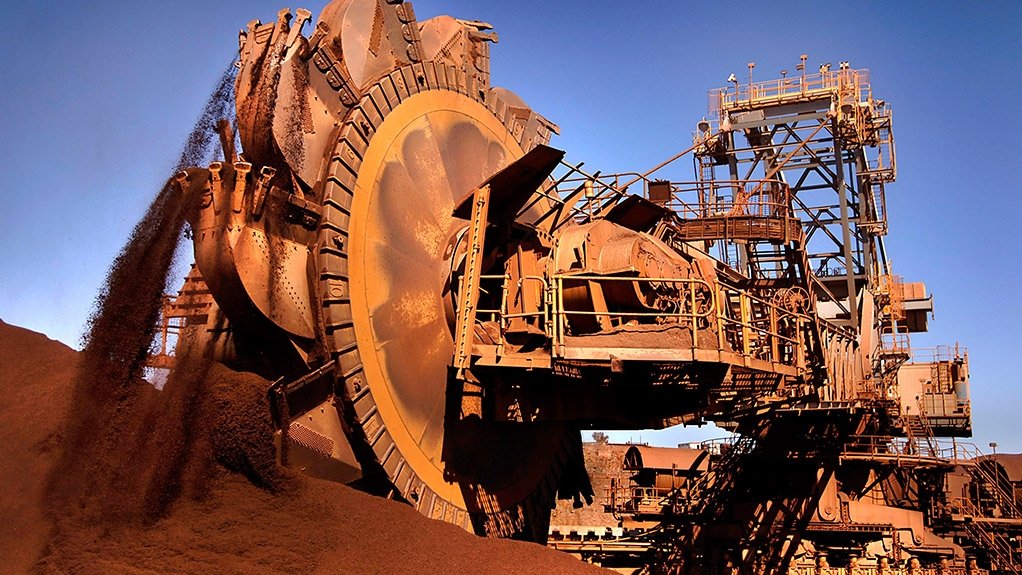PERTH (miningweekly.com) – Mining major Rio Tinto on Tuesday lowered its 2017 Australian iron-ore production target by some 20-million tonnes.
The miner, which has maintained a 2016 production guidance of 350-million tonnes of iron-ore, told shareholders that Pilbara production was expected to be between 330-million and 340-million in 2017, down from the previous estimate of 350-million tonnes, owing to the delay of its AutoHaul system.
The AutoHaul system was the world’s first fully autonomous heavy haul, long distance railway system, and formed a key part of Rio’s strategy in the Pilbara.
Rio meanwhile reported a 13% year-on-year increase in global iron-ore production to 84-million tonnes in the first quarter ended March.
Global iron-ore shipments were up 11% on the previous corresponding period, to 80.8-million tonnes, with the higher output owing to the completion of some brownfield developments and expanded infrastructure capacity in the Pilbara.
However, iron-ore production was down 4% on the previous quarter owing to normal seasonal factors.
Mined copper production was down 2% on the previous corresponding period, and up 27% on the previous quarter to 887 000 t, with higher grades reported at the Kennecott mine, in the US, and improved throughput and water availability at the Escondida mine, in Chile, as well as Rio claiming a share of the Grasberg production, from Indonesia.
Hard coking coal production for the three months to March reached 1.98-million tonnes, which was down 1% on the previous corresponding period, but up by 4% on the December quarter, while semi-soft coking coal and thermal coal production declined to 5.5-mllion tonnes, down 3% on the previous corresponding period and down 8% on the previous quarter.
Rio reported that thermal coal production was affected by wet weather conditions at the Hunter Valley operations during January, with the output also reflecting the change in ownership following the divestment of the Bengalla mine.
Bauxite production for the March quarter increased by 6% on the previous corresponding period, to 11-million tonnes, while aluminium production was up 10% in the same period to 887 000 t.
“These results demonstrate our commitment to operational excellence in 2016, with notable improvements in several important areas, including a strong performance in aluminium,” said Rio CEO Sam Walsh.
“However, we continue to experience volatility in commodity prices across all markets. In the face of a testing external environment, our focus remains on delivering further cost and productivity improvements, disciplined capital management and maximising free cash flow to ensure Rio remains strong.”
Edited by: Mariaan Webb
Creamer Media Senior Deputy Editor Online
EMAIL THIS ARTICLE SAVE THIS ARTICLE
To subscribe email subscriptions@creamermedia.co.za or click here
To advertise email advertising@creamermedia.co.za or click here













